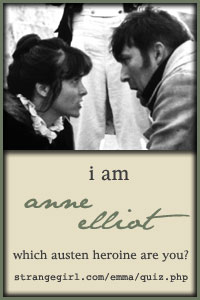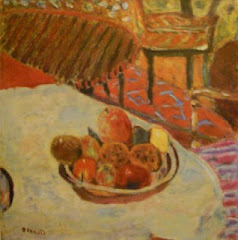Sunday, January 29, 2017
Saturday, January 28, 2017
The Year of the Rooster
The
year of the rooster has begun. I would
typically be pleased to think of it as the year of the cockerel, as well, but just
as Billy Collins wrote in his poem about living in the moment—just not this particular moment—I would if I could
choose a different year, a past year or somewhere vaguely off in the future,
four years from now or so, to have as mine.
I
love the brilliant roosters Picasso inspired, and would like to see them as my
augury, if that's not tempting fate. Le coq again by choice not d'or, not the golden cockerel, but
giddily colored, a little lopsided, possessed of reggae rhythm or ragtime
syncopation, instigator of barnyard cock-ups and inspired kookiness. Roosters as jaunty and individualistic as my
friend Fleur's chocolate brown chickens who are fed scraps of chard & manchego
pizza and strut around the patio and under the immense old Banyan tree showing
off swaths of handsome turquoise feathers from a recent tangle—or tango—with
wet house paint.
Years ago in that house in Hawi I wrote about
waking to the sound of a rooster, for the first time since Greece, and then a
mockingbird in the same cadence. I'd have my breakfast at the green table out in
the yard, looking at the pastures just beyond the loose barbed wire fence
behind, where a buckskin with black mane and tail, tethered, grazed—pastures upswept
by wind, thick, luscious green, climbing gently to old abandoned macadamia nut
orchards, and eventually to the rain forests which once irrigated North Kohala's
sugar cane.
Another
year, we celebrated Chinese New Year in Kona, finding ourselves there at the
same time as a long-lost friend from high school and her family. We had a lovely dinner at a long table under
the palms, with sea turtles in the shallows just off the sandy beach. We drank rum and fruit juices and watched the
sun set into the ocean and with the coming of the dark the Chinese dragons
insinuate their way among the tables, fed red envelopes for luck. They swooped and shot up tall again, as the
drum pulse moved them. We were eleven, a
congenial number: four children, two elders,
the perfect gathering. (Another of those
festivals that were.)
So
may my cockerel be a lucky bird, the fire rooster on its best behavior. And if it isn't, we might turn it fast into
this dish whose description has amused me, which would feed a happy crowd:
In
a terra-cotta marmite, greased with finely chopped pork fat, simmer an old
rooster with some carrots and onions.
Perfume the bird with garlic, parsley, thyme and bay, and baste with
olive oil from Aix, and later with a glass or two of brandy. With this first cockerel of the New Year
serve a dozen partridges to represent the 12 months of the year, 30 fried eggs
for the days of the month, and 30 pitch black truffles for the nights. (Rene Jouvean, from La Cuisine Provencal de Tradition Populaire)
images: Picasso, Le
Coq
Friday, January 27, 2017
Laudate Dominum
When everything we create
is far in spirit from the festive,
in the midst of our
turbulent days let us think of what festivals were.
(from Rainer Maria Rilke,
The Sonnets to Orpheus)
I'm sitting in a beach
chair in the mid-afternoon sun on the patio, celebrating Mozart's birthday—listening
over and over to his Laudate Dominum
on our "Megaboom" speaker behind me in the doorway (though it plays
even underwater, they tell us, and I could easily carry it with me on a hike),
and drinking special oolong tea from a little cup-and-pot set. I can't ever decide if the sacred music is
more perfectly sung by Anja Harteros or by Cecilia Bartoli; each version is
sublime and divine. The tea is perhaps
Wood Dragon Roasted Twig, or Buddha's Hand.
Even if something more prosaic, my little impromptu birthday party, attended
by a few birds and by our worn-down goddess of compassion on her weathered
ledge, is somehow just what Rilke had in mind.
image: Lawrence Alma-Tadema, Spring
Saturday, January 21, 2017
Thought for Today
May
peace prevail on earth.
image: Que La
Paz, in the garden of the Quaker Meetinghouse, Canyon Road, Santa Fe, New
Mexico
Friday, January 20, 2017
If Only We Knew How to Blossom
[The Almond Trees in
Blossom]
The almond trees in blossom: all we can
achieve here is the traceless
recognition of
ourselves in earthly appearance.
Endlessly I gaze at you
in wonder, blessed ones, at your composure,
at how in eternal delight
you bear your vanishing beauty.
Ah, if only we knew how
to blossom: our heart would pass beyond
every
small danger, and would
find peace in the greatest danger of all.
—Rainer Maria Rilke
translated by Stephen
Mitchell
image: Pierre Bonnard, The Almond Tree in Blossom
(the last painting he
ever made)
Thursday, January 19, 2017
Wednesday, January 18, 2017
Genmaicha
I
brew and drink the genmaicha I bought in Santa Cruz inside the rain in the tea
and rug shop that made me think of Santa Fe, a low-roofed shop with wooden
floors and rough woven kilims in earthen colors and the saturated reds of plant
or mineral dyes. Green tea with roasted
brown rice, a few of the grains popped like popcorn. A tea that offers great comfort, that holds sagacity
and love in it.
The
flavor takes me back to where we first drank it, the rustic old Manago Hotel on
the road through the village of Captain Cook on the Big Island of Hawai'i. The one-room restaurant with its big screened
windows open to the ocean breezes where we went often over twenty-some years, which
my father knew first during the war. It
was always a favorite spot for pork chops and for local fish, served
family-style with bowls of sticky rice, potato or macaroni salad, tofu,
marinated seaweed. And a sacramental pot
of genmaicha.
The
old family hotel would make me think in turn of pensioni on the shores of one of the Italian lakes I fell in love
with in my late twenties after a failed marriage, maybe because it smelled of
cooking meat and fish and had that dazzling view of sun-struck water, or because
it was wound together all along with that nostalgic yearning memory of leisurely
meals shared at a simple tables midday with a group of family and friends.
Between
Keauhou Bay and Honaunau Bay, along the highway south through coffee country,
past the coffee mills and sausage trees, between the place we stayed and the
place where we left my father, in the end,
it
was exactly the right place to find ourselves again after we'd scattered his ashes. Homey and comforting. All of us starved, feeling the call to life, we
ate large helpings of pork chops and rice.
Besides "Mama," "Daughter," and "Auntie,"
Mom's Hawaiian singer friend who painted houses when his music didn't pay
enough, and told me about swimming with an 80-pound pet eel; the English
gardener whose father was a seacaptain and who brought little pecan tarts and
bags of papayas to my mother; and the wise and funny Honolulu-born elder, kupuna, who made jewelry from coral,
seed pearls, seed pods, and sharks' teeth.
Honaunau
Bay is just outside the City of Refuge, sacred ground to the ancient Hawaiians,
and an important place to us—closed just then, ironically, because of a
political standoff in Washington (something my father would have had some pithy
words to cover). So near to sacred
ground (appropriate for a much vaunted agnostic) we gathered between the
historical site and a tiny native fishing village with tin roofs at the boat
harbor, where locals park in big old beat-up vans to talk-story and drink beer.
The
captain of the outrigger canoe which took out the ashes was a fisherwoman too and
a breeder of terriers, and had a house on the mountain besides one on the bay
there in that fishing village, with five lava steps leading right down into the
water. Water the color of sapphires, my
father's September birthstone. She'd
made an altar, with a square of bright cloth, a pareo, laid out over a stone wall at the boat harbor, and flowers
in a ceremonial pattern on it—leis, white and butter yellow plumeria, dusty
lavender crown flowers. She had us put
the container of ashes ("Temporary Container") in the center, within the
circle of the middlemost lei, and any snapshots we had of "Papa." The picture by the cottonwood in Santa Fe, when
I was in eighth grade; and one up to his shins, pantlegs tidily rolled, in the
river in Yellowstone, where my parents had met.
Circled around it, we listened to "Amazing Grace" in Hawaiian,
and "Aloha Oe"; to a passage from Colette my mother had found; to a
tribute I'd written.
And
later we would eat pork chops and rice with chopsticks at a big square table in
an airy room with wooden walls and floors and big screened windows and the sea
below. We would drink genmaicha,
spilling a spontaneous offering from the lip of the ceramic teapot to the local
gods, who'd come and joined us as we sat and talked.
Reading
the tea leaves tells of the long skein of life past as well as the future. Fortune goes both ways. Backwards and on, ahead, glimpsed only in a
cup or glass, darkly. The earthy fragrance
and flavor of toasted rice, cupped in both hands, coaxes the necessary stories
out.
image:
Japanese Tea Sommelier
Subscribe to:
Posts (Atom)


























